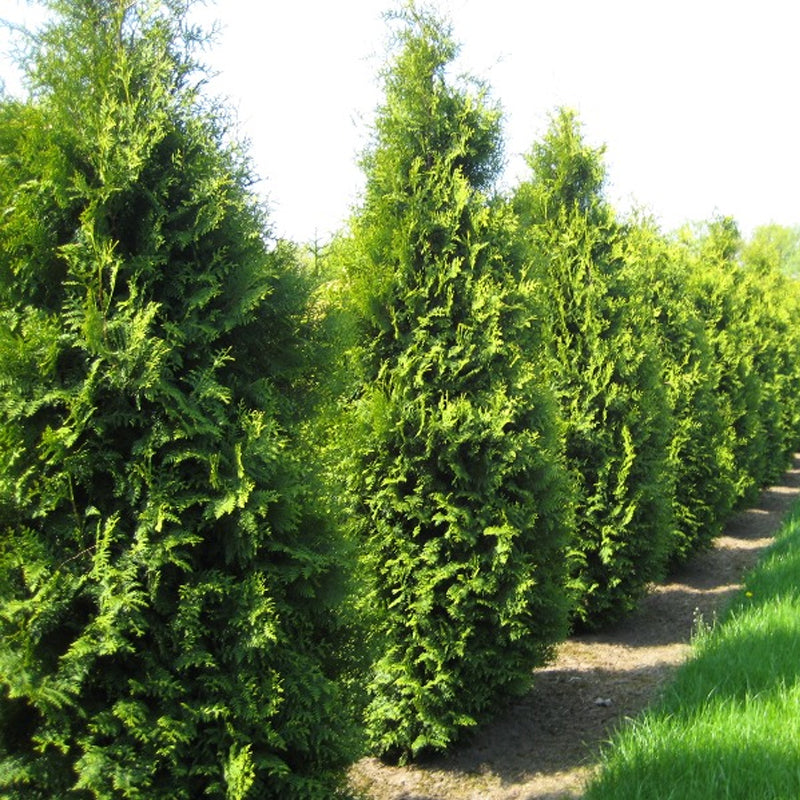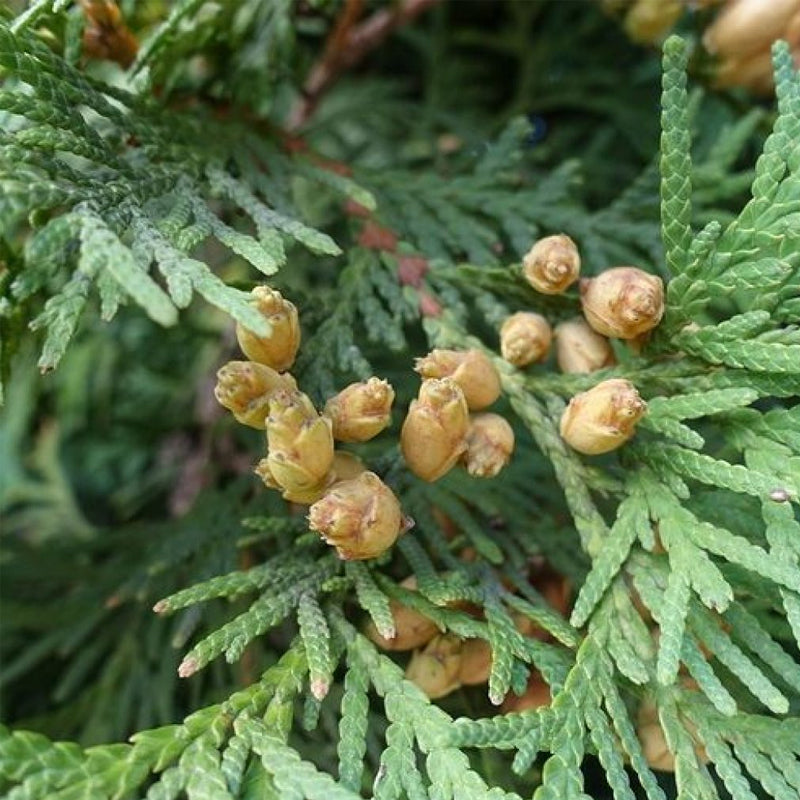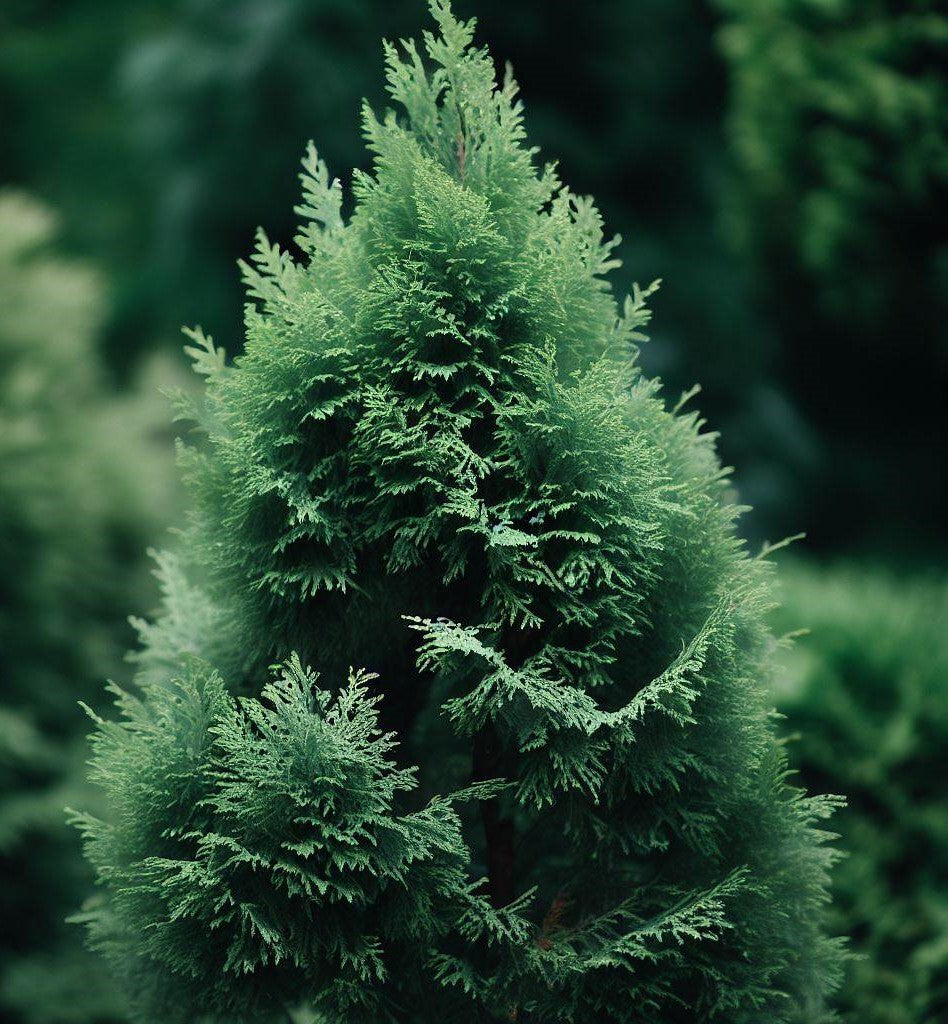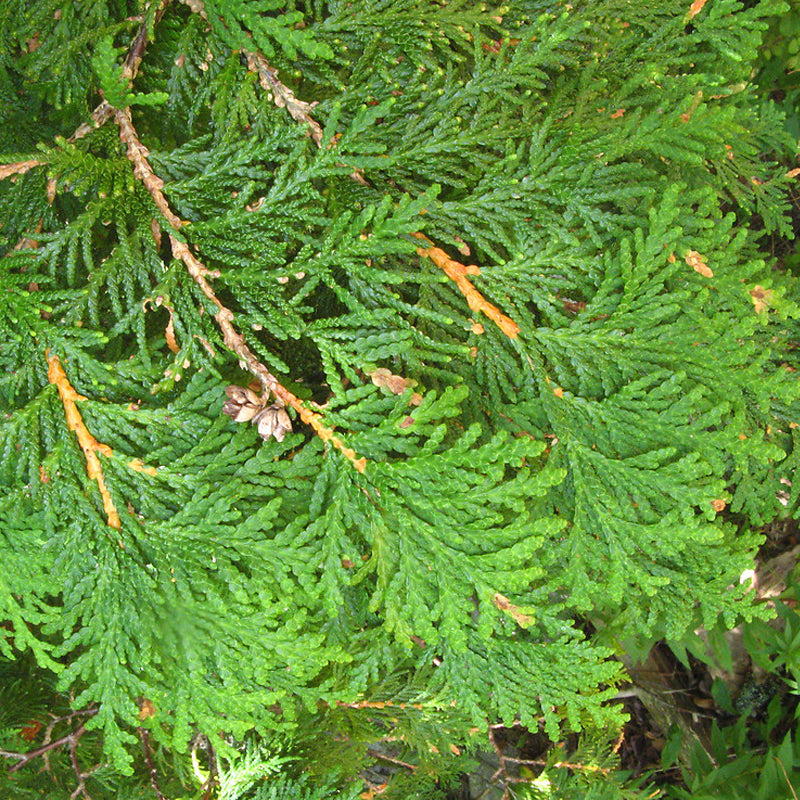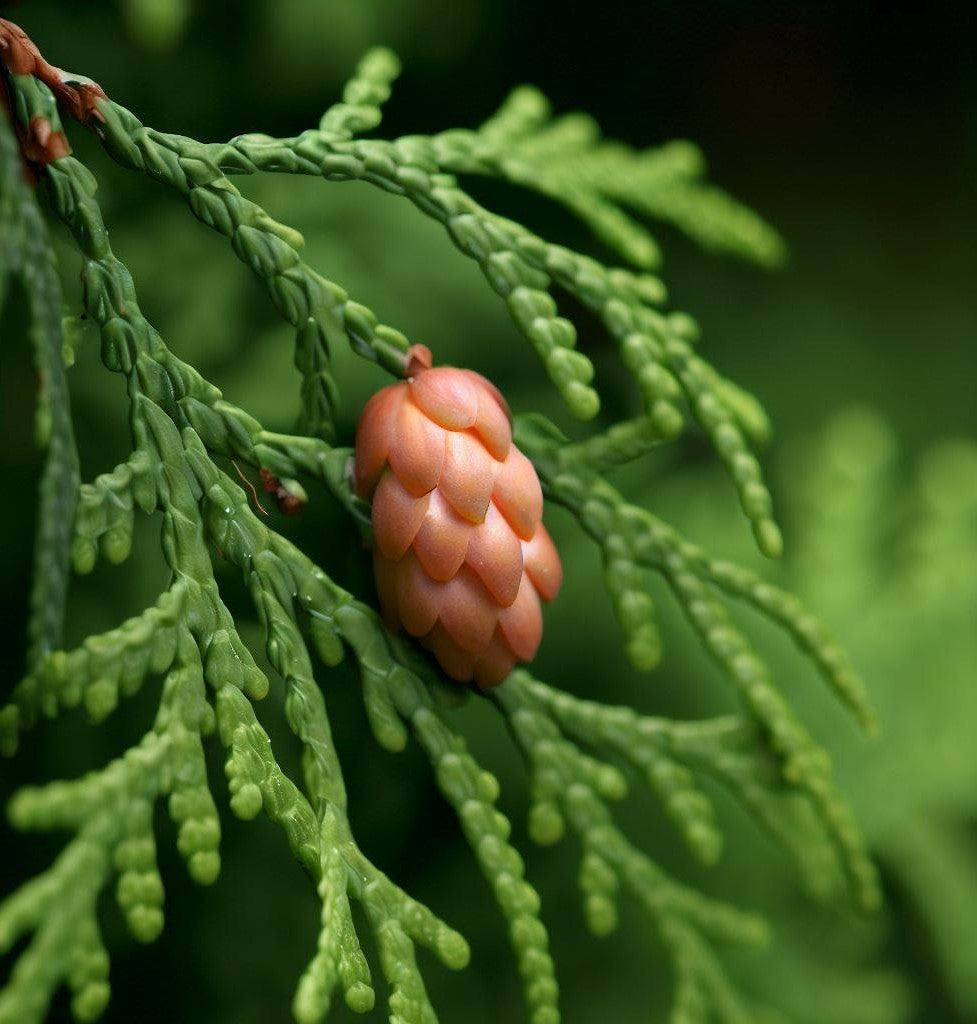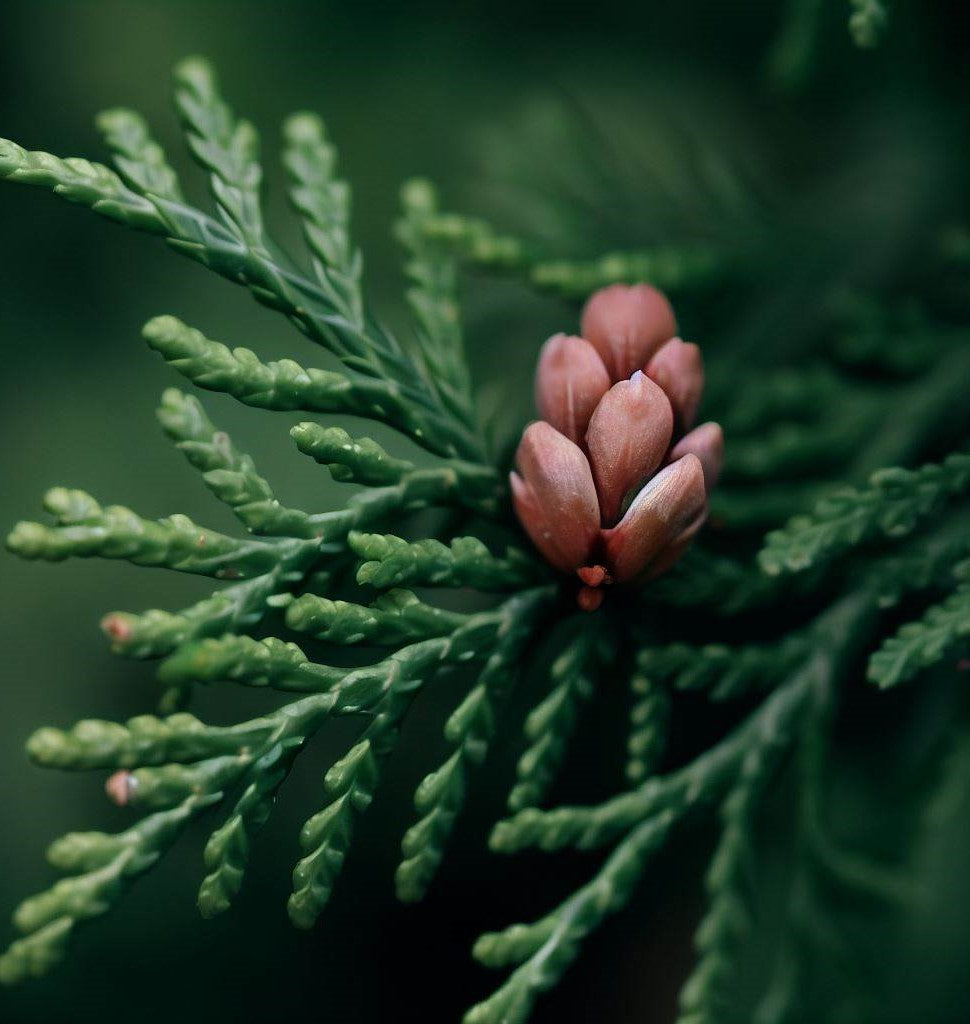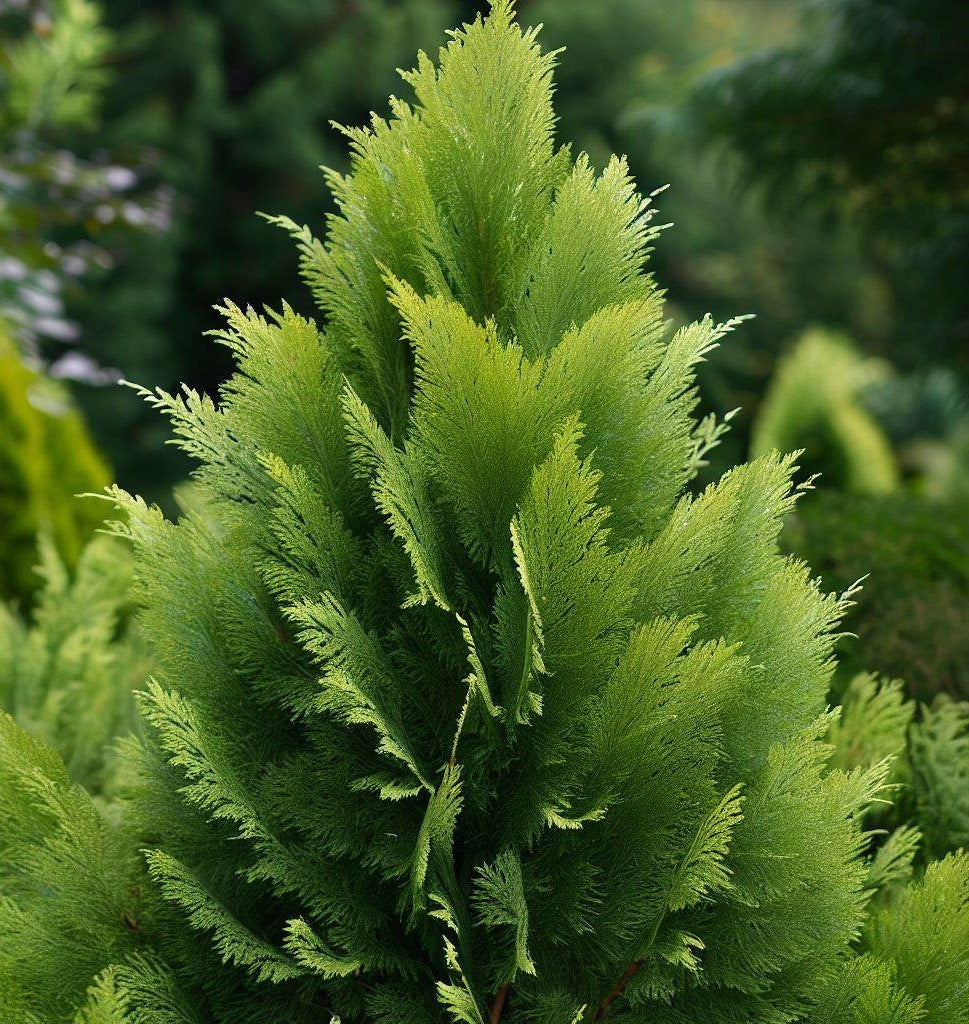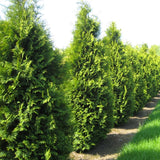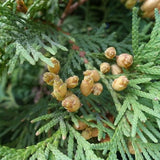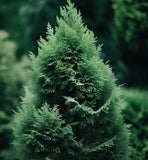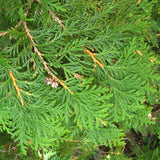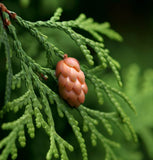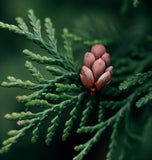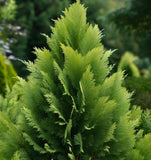Thuja occidentalis (American Arborvitae, Eastern Arborvitae, White Cedar, Arborvitae)
Thuja occidentalis (American Arborvitae, Eastern Arborvitae, White Cedar, Arborvitae) is a medium-sized evergreen tree native to North America. American Arborvitae typically grows to a height of 10 to 20 meters (33 to 66 feet) and has a narrow, conical shape. The foliage consists of flat sprays of scale-like leaves that are bright green in color. The tree's bark is reddish-brown and peels off in thin strips.
Native Habitat: American Arborvitae is native to eastern North America, ranging from southeastern Canada to the northern parts of the United States. It commonly grows in moist, swampy areas, as well as in upland forests.
Cultivation: Due to its attractive appearance and dense foliage, American Arborvitae is widely cultivated as an ornamental tree in gardens, parks, and landscapes. It is popular for hedges, screens, and windbreaks due to its dense growth habit and ability to tolerate pruning.
Characteristics: The wood of American Arborvitae is lightweight, soft, and aromatic. It has a pale yellow to light brown color and is relatively resistant to decay. The tree's branches have a fan-like arrangement, with flattened sprays of foliage.
Environmental Role: American Arborvitae provides habitat and nesting sites for various bird species. It also offers cover and food for small mammals. The tree's dense foliage helps to stabilize soil and prevent erosion.
Uses: In addition to its ornamental value, American Arborvitae has historical uses. Native American tribes used the tree for various medicinal purposes, including treatments for respiratory ailments. The wood is used in small-scale applications, such as crafting wooden objects and making aromatic cedar chests.
Conservation Status: American Arborvitae is not currently considered a threatened species. However, like any tree species, it can face threats from habitat loss and overharvesting. Sustainable cultivation and conservation practices help maintain healthy populations.
Botanical Name : Thuja occidentalis
Common Name : American Arborvitae, Eastern Arborvitae
Height : 30-40 ft
Spread : 10-12 ft
Germination Info : Seed does not require a pre-treatment
Hardiness zone : 3-7
Average seed per ounce : Approx. 21250

